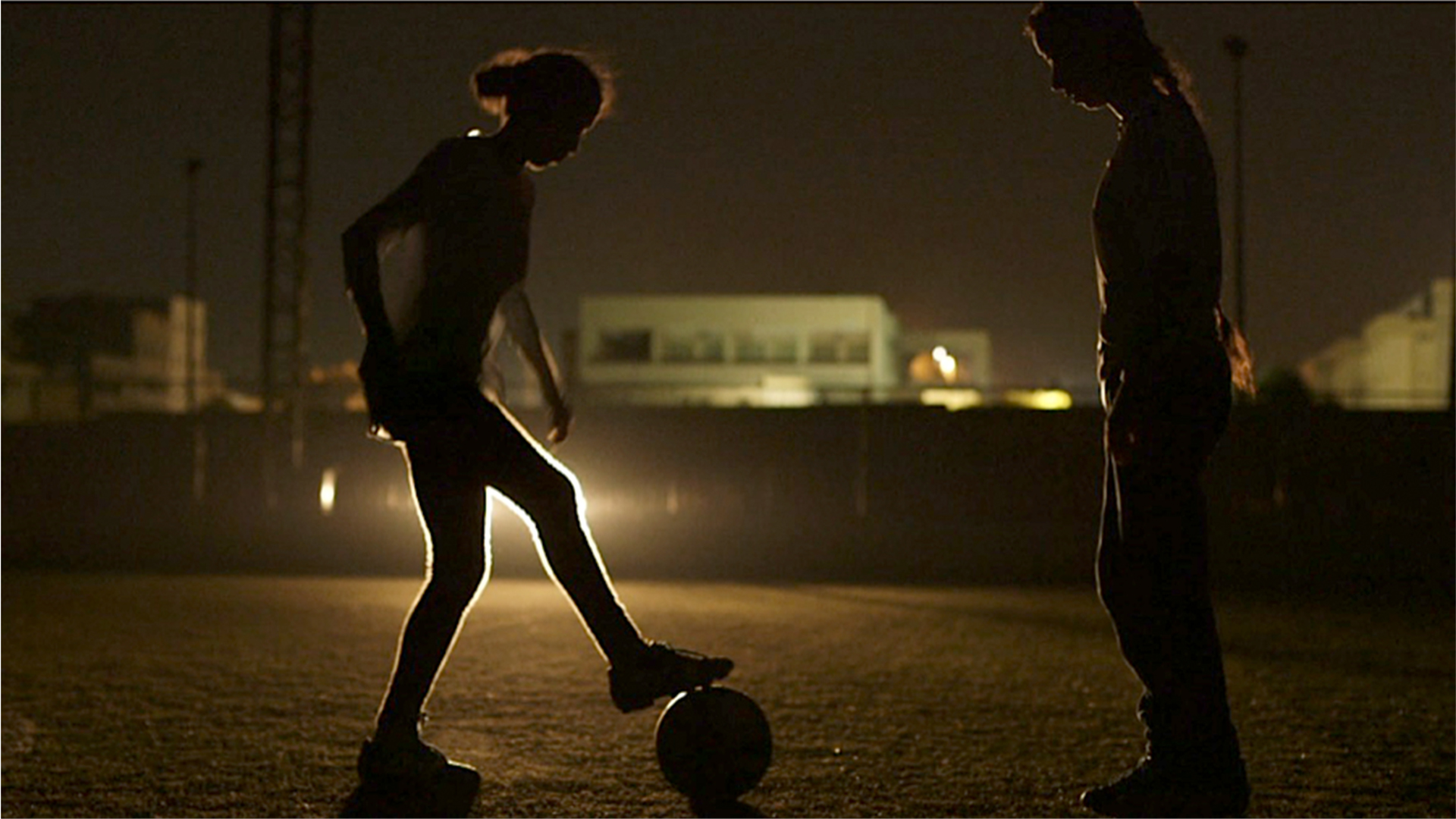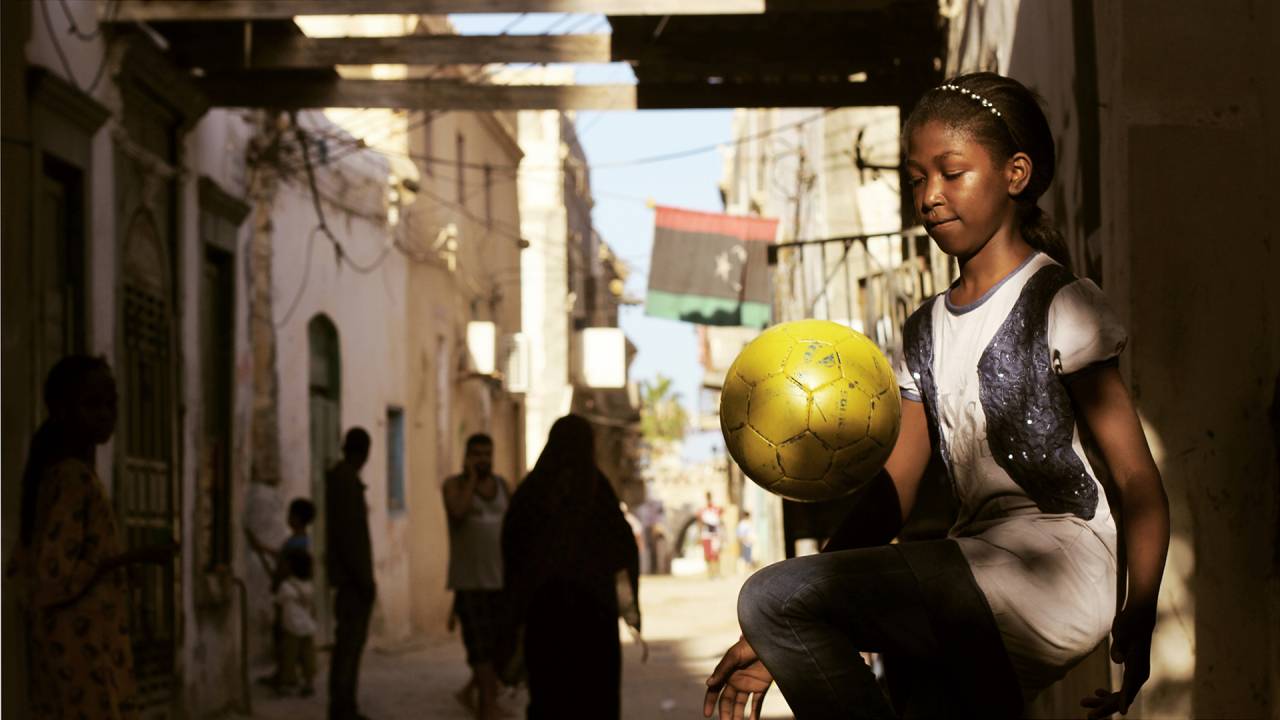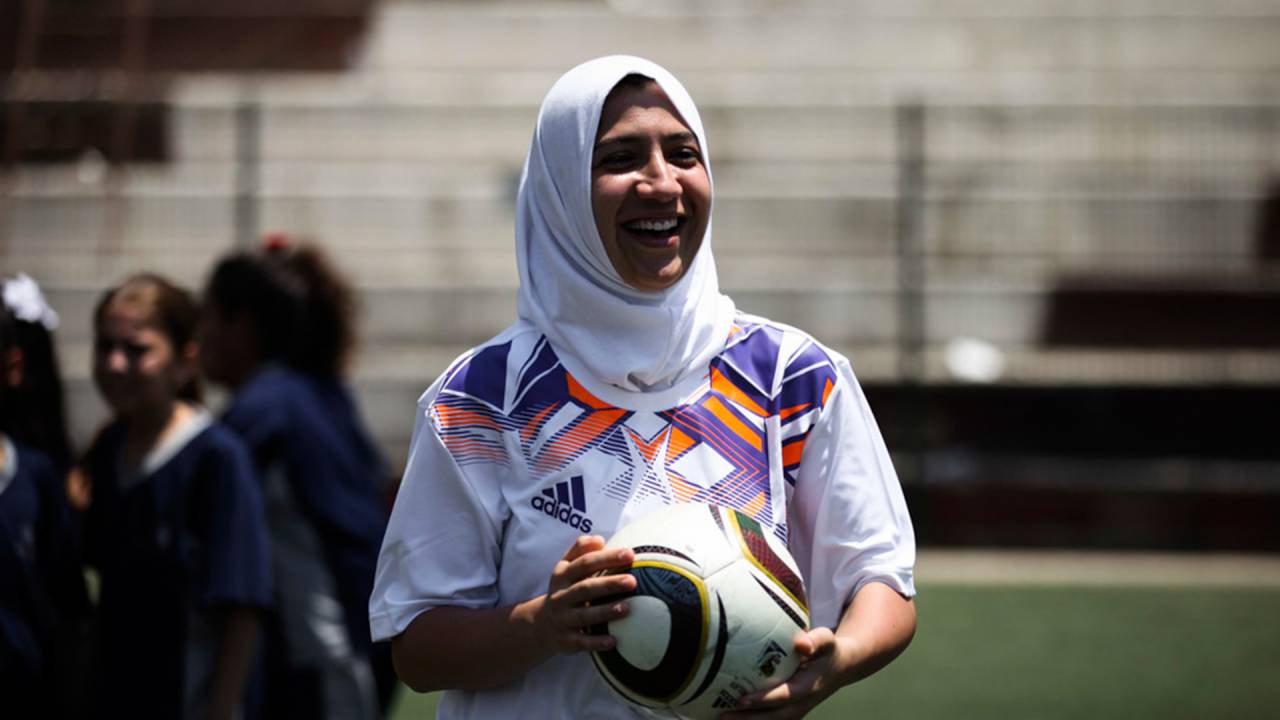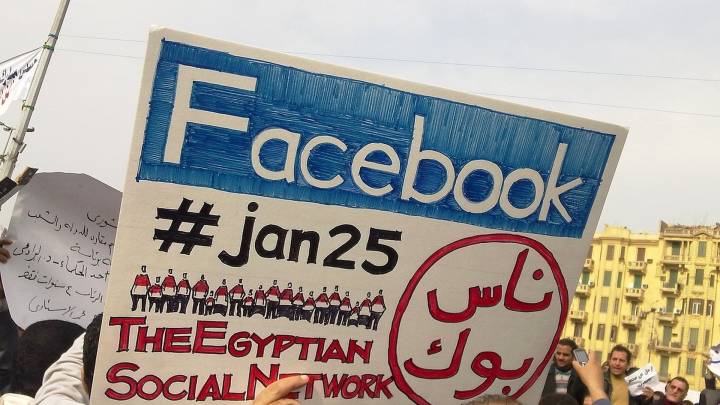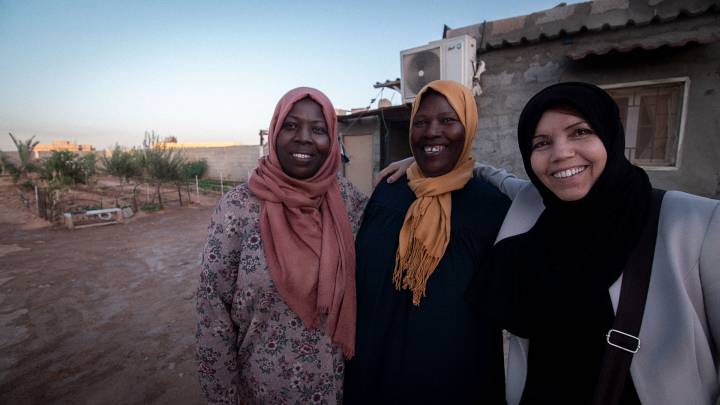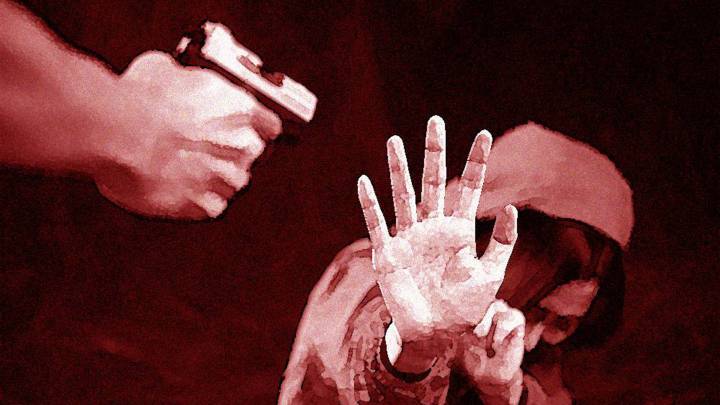Footballer Fadwa El-Bahi led the Libya women’s national team through the civil war and the crossfire of religious hardliners. A conversation about courageous women and coward associations.
zenith: Under Gadhafi, women's football was permitted, but it was often played behind closed doors without spectators. Conservative forces wanted to keep the sport out of the public eye. Did anyone even took an interest in your struggle?
Fadwa el-Bahi: We were the national team, but we weren't allowed to play. We trained and trained and when there was a game, we were stopped prevented from playing without knowing why. Was it a financial problem or something else? That was before the revolution. After that, it was the religious fanatics who stopped us. Nevertheless, we travelled to Lebanon [to participate in an international tournament there]. We organised everything by ourselves and played.
How did your footballing career start?
In my family, we are four girls and one boy. I am the youngest. My brother always wanted a brother but he had to be content with me. That was where it began. We played and he coached me: ‘You must not touch the ball with your hand!’ This is how I learned the rules and I took that knowhow with me onto the streets. Every day I came home, did my homework, and then went out to play football.
‘If you want to make a national team on its feet, you don't just go out and round up a couple of girls and put them in a jersey.’
Is your passion for football putting you in danger?
Women in Libya are showing strength, but the conservative sections of society are trying to belittle them. I was lucky because I grew up in a liberal family. It was a little easier for me. At least not as difficult as for the others. We went through a lot. Someone photographed us training and uploaded pictures to Facebook. A wave of hatred and threats followed. Things like that don’t happen without leaving their mark on you. Everyone knew who we were. Shortly thereafter, our team became the object of a televised Friday prayer sermon. The imam publicly defamed us. The Islamist group Ansar al-Sharia then branded us. Why us? The whole country was in the midst of a civil war. There were so many more important issues than a few women playing football.
Libya did not qualify for either the African or the World Championships. Are the poor training conditions and the lack of government support to blame?
Definitely. If you want to get a national team up and running, you don't just go out and round up a couple of girls and put them in jerseys. It takes more than that. You have to train these girls, support them, help them. We missed all that. Even when we were being hounded by the media, we were always on our own.
‘Football is a powerful game. It changes the way the players think and that's what many people are afraid of’
Do your male colleagues support your struggle?
We have never met the men's national team, but sometimes the men around us have supported us. Our coach, for example, trained us without getting paid. But these men are in the minority. They are so few of them that they are hardly visible. Most men are against it. Football is a powerful game. It changes the way the players think and that's what many people are afraid of. It is not the sport itself they fear, but that women will gain more power by merely playing it.
A few months ago, Egyptian star striker Mohamed Salah gave an interview to Time Magazine in which he said: ‘We need to change the way we treat women in our culture.’ A short while after, during the African Cup, he backed his teammate, Amr Warda, who was then accused of sexual harassment.
Salah shouldn't have done that. I think someone pushed him into it. Maybe it was to stem the flow, probably so Warda could keep playing in the tournament. I don't think Salah is a bad person and I think he knows he made a mistake.
After winning this summer’s World Cup in France, the US women's national team highlighted the disparity in wages between men and women in football. Do you agree that female and male footballers should be paid the same?
It makes senses. The US men's national team has never won anything. And how many titles do the women have? Four or five? They deserve to earn even more than their male colleagues. I can understand their frustration.
The revolution and the civil war have fundamentally changed Libya. What exactly happened to football during that period?
We thought things would get better after the revolution. We dreamed that as a national team we could finally do something we had previously been prevented from doing: to play football. The opposite was true and the situation only got worse. The civil war dictates our thoughts and actions. During this time, we decided to set up the HERA organisation. Football helped us to survive. We wanted to pass on what we had learnt to other girls in Libya. That was our mission.
‘We still play football together. On a Friday night or very early in the morning, when everyone is asleep.’
How did you manage do that in the middle of the war?
We had to fight. But if we hadn't done so, who would have? It is hard to imagine what the situation is like for these girls. To be born and grow up in a civil war. For them, war is the norm.
Do you feel that you gave up the fight for your team by retiting in 2016?
It's the federation's fault. The same people are still in power. Nothing has changed. We would have only wasted our time. No one regrets this step. We are better off without them. Sometimes we still play football together, on a Friday night or very early in the morning, when everyone is asleep. Then we go out and rent a place. Maybe they can take the national team from us, but the game belongs to us.
What does your activism mean to you for girls and women's football?
We try to remain below the radar. We don't do much advertising, and we rarely post photos, because we get so many hateful comments. So, we don't call ourselves activists, we just want to help. We organise these workshops and sometimes we ask ourselves if what we are doing is enough? Can't we do more? Then I see that the girls we meet on the first day are not the same by the end of the week. The body language, their self-confidence. This is the reason for our work. We try to remember that.
For the film ‘Freedom Fields’ your team was accompanied by a camera crew for over five years. How did you feel the first time you saw the final result?
I was overwhelmed. I saw the film for the first time at the Toronto International Film Festival in the autumn of 2018. I cried throughout the whole screening. And I felt a great deal of pity for the girls in the film, even though I was one of them. Today I am in a very different place in my life. I look back and think that these young women had to suffer so much. And just because they wanted to play football.
A few years ago, you played in a car park with headlights as floodlights. Now you even visit schools with your organisation. Hasn't something changed at least?
I don't think so. We're still the weirdos playing football. The place where we train has to be closed to the outside. It's impossible without connections to the owner. What has changed is our perseverance. We keep asking questions, we don't give up. But nothing has changed in society. We could never play in public.
What is your hope for Libya?
Eight years have passed since the revolution and nothing has happened. During this time, we have had many hopes. We dreamed of freedom, of becoming the people we want to be. None of these dreams came true. I wish for a place for women in our society. They work hard, raise children, create everything on their own, and do not even realise how strong they are. I would like to see independent role models for young girls in Libya.
Fadwa el-Bahi lives in Tripoli and captained the Libyan women's national team. She left the team in 2016 and founded the Hera Organization together with eight of her teammates. Their aim is to strengthen young girls in Libya and overcome cultural barriers through sport. With their workshops they visit schools and refugee camps. For the film "Freedom Fields" El-Bahi and her teammates were accompanied by a camera for more than five years as director Naziha Arebi tells the story of the women's national team in post-revolutionary Libya. The film premiered in 2018 at the Toronto International Film Festival.
